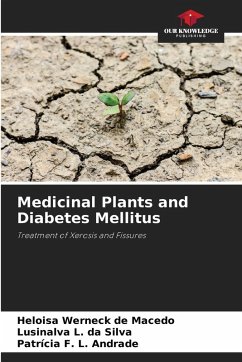This book presents current knowledge on the use of herbal medicines in the treatment of skin alterations in diabetes, whose chronic complications are responsible for the high morbidity and mortality of the disease. Xerosis, an abnormal dryness of the skin that is very common in diabetic patients but not restricted to them, if left untreated can lead to the formation of fissures (small cracks in the calloused skin of the feet, caused by the linear loss of the epidermis/dermis), which are a gateway to infections. As healing in diabetic patients is a complicated process due to high glycaemia, preventing the formation of fissures is of great importance and can be achieved by treating xerosis by moisturising dry skin. This prevents the complications of 'diabetic foot', which can lead to lower limb amputations. The scientific studies reported here identify and prove the efficacy of the use of natural products in aiding the repair and healing process of these lesions, through their antiviral, antimicrobial, anti-inflammatory, healing and cell regenerating activities, which are important in the treatment of xerosis and skin cracks.
Bitte wählen Sie Ihr Anliegen aus.
Rechnungen
Retourenschein anfordern
Bestellstatus
Storno

